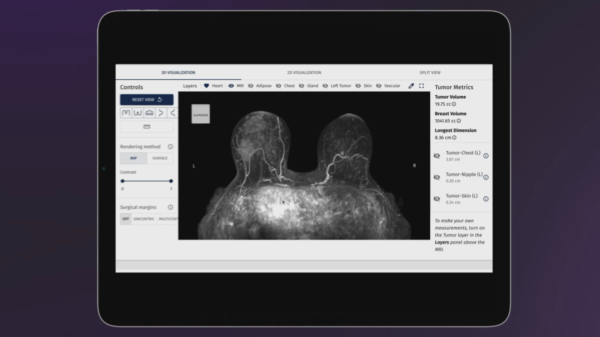Researchers in the United Kingdom say they have developed an affordable and efficacious lung cancer urine test unlike any other created thus far. They announced the achievement on Friday.
It works by identifying senescent (old) or “zombie” cells that enable the disease to spread. These oncology scholars have proved that the test achieves desired outcomes in mice and plan to begin human studies within the next year.
For it to work, the mice were injected with a solution that introduced a sensor into their body. The investigators were then able to detect the presence of zombie cells linked to lung cancer by adding a silver solution to the samples, causing a distinct colour change. These small rodents are widely used in various cancer studies.
The research team, led by Professor Ljiljana Fruk and Dr Daniel Munoz Espin at the University of Cambridge, believe their new diagnostics method presents a minimally invasive means of detecting the disease in its earliest stages. The timely detection could potentially enable the disease to be cured without surgery, long before it has spread extensively.
“We designed a test based on ‘peptide-cleaving proteins,’ which are found at higher levels in the presence of zombie cells, and in turn appear in the early stages of cancer,” Fruk explained in a press release from the institution.
An £88,000-pound grant from Cancer Research UK enabled this testing method to be pioneered. It could potentially be used to detect multiple other cancers in the disease group.
Approximately 50,000 people in the UK are diagnosed with lung cancer annually.
'This keeps me really hopefuly about the developments in the next ten years.'
Professor LjilJana Fruk champions a new urine test which could discover early signs of lung cancer.
📺 Freeview 236, Sky 512, Virgin 604
🔓 Become a GB News Member: https://t.co/mNsRsGC8ef pic.twitter.com/3HO868lzd1— GB News (@GBNEWS) December 6, 2024
Read more: Breath Diagnostics onboards new president and closes critical financing
Read more: Breath Diagnostics pioneers novel lung cancer breath test
MIT researchers craft distinctive pee tests
The Massachusetts Institute of Technology and a company developed by the institution’s researchers, Glympse Bio, have made unique urine tests used to identify the respiratory ailment. They have been working on these for years.
MIT and Glympse’s tests work by getting the subject to inhale aerosolized nanoparticles, which then interact with the disease in a manner that enables biomarkers associated with lung cancer to be detected in the subject’s urine, in a nutshell. They can be injected too.
Glympse raised US$46.7 million to fund its research in 2020.
The one that MIT has developed is still in the early stages of development, focusing on proof-of-concept studies in animals. Though similar, Glympse Bio’s has advanced to in-human clinical trials and has the potential to identify other cancers.
This company, the prestigious American school that it was born from and the University of Cambridge are the primary organizations excelling in development of urine lung cancer tests.
rowan@mugglehead.com














